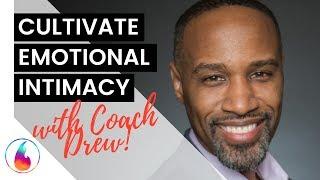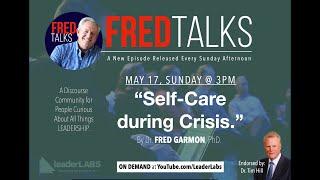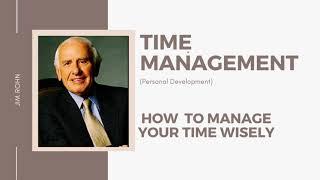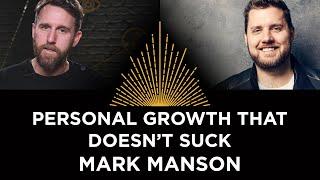Briefing by Sima Bahous, Executive Director of UN Women, on the role of women and young people in maintenance of international peace and security.
Excellencies,
My thanks to Mozambique for convening us around the crucial agenda of women, youth, peace,
and security.
Excellencies,
On November 1st last year, UN Women published a story about a 34-year-old psychotherapist in
Rafah. She specialized in helping patients process the trauma of living in conflict. Her name was
Amani.
A few short weeks ago, on May 7th, Amani was killed alongside her four children.
Amani is one of more than 10,000 women killed in the last seven months. Just yesterday scores
of women and children were horrifically killed in Rafah, in a safe zone while they were asleep in
tents in a camp for the displaced.
It is for her, and for them, that we demand a permanent ceasefire, the release of all hostages,
the determined pursuit of peace and a two-state solution. This war must stop.
Excellencies,
Last year, nearly 300 human rights defenders were killed, 49 of whom were women. These are
just the known cases, there are likely many more.
In January 2023, Mursal a young woman, and former member of Parliament in Afghanistan was
shot and killed in her home near Kabul.
She stayed behind when the Taliban took over, still clinging to hope that her contribution to the
development of her country would be valued.
In October last year, Halima a 30-year-old journalist was killed while covering the war in her
native Sudan.
Amani, Mursal, Halima and the lives of women whose names we will never know, were a
demonstration of the power of women’s contribution in crisis. The way they carry their families
and nations on their shoulders.
The imperative of their knowledge of their communities, their voice and leadership in decision-
making.
Their death is another painful reminder of the realities of war for women and girls, and that the
disproportionate harm inflicted on women during wars and conflicts not of their making.
To echo the Secretary General, "to silence the guns, we must raise the voices for peace.”
Excellencies,
While here, we rightly embrace Security Council Resolution 1325 as a crucial global norm, for
them it remains a distant dream. Not only in Gaza but in Haiti, Myanmar, Sudan, the DRC,
Yemen, Afghanistan, in too many countries to count the world over.
I salute this Council´s efforts on increasing the voices of women, including young women, as
briefers. I commend this, and urge you to continue doing so, to listen, to engage, and to act on
their asks.
Excellencies,
Young women and girls face a double discrimination, that is intensified during conflict,
discrimination for their sex, and for their age.
I applaud the examples of progress made to address this in the Secretary-General’s report on
youth peace and security, which USG DiCarlo shared with us. Allow me to share a few more
examples, highlighting what can be done.
As UN Women we have conducted capacity-building initiatives for youth organizations to
participate in peace processes in Georgia and transitional justice initiatives in Lebanon.
Last year, UN Women and UNFPA supported 79 peacebuilding processes that were inclusive of
young women, across seventeen different countries.
And since 2016, the Women’s Peace and Humanitarian Fund for which we serve as Secretariat
has supported organizations focused on youth or led by young women from 18 different
countries.
The funding window for women human rights defenders, set up in 2022, has already supported
young women from 21 conflict-affected countries.
In Afghanistan, UN Women, IOM, and UNAMA have been conducting quarterly surveys to hear
from Afghan women including special emphasis on young women.
We also continue to help break down barriers to inclusion, by finding ways to engage women
and young women.
For example, we know that inter-generational dialogues in conflict-affected countries can have a
powerful impact in communities searching for a way out of violence and division.
We must create more such spaces and ensure representation of women and young women
across decision making bodies.
Excellencies,
These examples show us what can be done, and that there are solutions we can take to scale.
The reality is that we are not doing so.
This is despite the clear experience that engaging young women in development, in ensuring
that they have equal opportunities, including equal access to the job market, helps sow social
cohesion and stability, and grows economies.
What we must do is ensure that we are breaking down power structures and harmful norms
that hinder young women and girls full and meaningful participation, and that diminish their
voice and their crucial contribution as leaders in their own right.
And, crucially, we must protect women and girls´ education, their autonomy, and their freedom
to decide on all their choices in life...
Excellencies,
My thanks to Mozambique for convening us around the crucial agenda of women, youth, peace,
and security.
Excellencies,
On November 1st last year, UN Women published a story about a 34-year-old psychotherapist in
Rafah. She specialized in helping patients process the trauma of living in conflict. Her name was
Amani.
A few short weeks ago, on May 7th, Amani was killed alongside her four children.
Amani is one of more than 10,000 women killed in the last seven months. Just yesterday scores
of women and children were horrifically killed in Rafah, in a safe zone while they were asleep in
tents in a camp for the displaced.
It is for her, and for them, that we demand a permanent ceasefire, the release of all hostages,
the determined pursuit of peace and a two-state solution. This war must stop.
Excellencies,
Last year, nearly 300 human rights defenders were killed, 49 of whom were women. These are
just the known cases, there are likely many more.
In January 2023, Mursal a young woman, and former member of Parliament in Afghanistan was
shot and killed in her home near Kabul.
She stayed behind when the Taliban took over, still clinging to hope that her contribution to the
development of her country would be valued.
In October last year, Halima a 30-year-old journalist was killed while covering the war in her
native Sudan.
Amani, Mursal, Halima and the lives of women whose names we will never know, were a
demonstration of the power of women’s contribution in crisis. The way they carry their families
and nations on their shoulders.
The imperative of their knowledge of their communities, their voice and leadership in decision-
making.
Their death is another painful reminder of the realities of war for women and girls, and that the
disproportionate harm inflicted on women during wars and conflicts not of their making.
To echo the Secretary General, "to silence the guns, we must raise the voices for peace.”
Excellencies,
While here, we rightly embrace Security Council Resolution 1325 as a crucial global norm, for
them it remains a distant dream. Not only in Gaza but in Haiti, Myanmar, Sudan, the DRC,
Yemen, Afghanistan, in too many countries to count the world over.
I salute this Council´s efforts on increasing the voices of women, including young women, as
briefers. I commend this, and urge you to continue doing so, to listen, to engage, and to act on
their asks.
Excellencies,
Young women and girls face a double discrimination, that is intensified during conflict,
discrimination for their sex, and for their age.
I applaud the examples of progress made to address this in the Secretary-General’s report on
youth peace and security, which USG DiCarlo shared with us. Allow me to share a few more
examples, highlighting what can be done.
As UN Women we have conducted capacity-building initiatives for youth organizations to
participate in peace processes in Georgia and transitional justice initiatives in Lebanon.
Last year, UN Women and UNFPA supported 79 peacebuilding processes that were inclusive of
young women, across seventeen different countries.
And since 2016, the Women’s Peace and Humanitarian Fund for which we serve as Secretariat
has supported organizations focused on youth or led by young women from 18 different
countries.
The funding window for women human rights defenders, set up in 2022, has already supported
young women from 21 conflict-affected countries.
In Afghanistan, UN Women, IOM, and UNAMA have been conducting quarterly surveys to hear
from Afghan women including special emphasis on young women.
We also continue to help break down barriers to inclusion, by finding ways to engage women
and young women.
For example, we know that inter-generational dialogues in conflict-affected countries can have a
powerful impact in communities searching for a way out of violence and division.
We must create more such spaces and ensure representation of women and young women
across decision making bodies.
Excellencies,
These examples show us what can be done, and that there are solutions we can take to scale.
The reality is that we are not doing so.
This is despite the clear experience that engaging young women in development, in ensuring
that they have equal opportunities, including equal access to the job market, helps sow social
cohesion and stability, and grows economies.
What we must do is ensure that we are breaking down power structures and harmful norms
that hinder young women and girls full and meaningful participation, and that diminish their
voice and their crucial contribution as leaders in their own right.
And, crucially, we must protect women and girls´ education, their autonomy, and their freedom
to decide on all their choices in life...
- Category
- United Nations
- Tags
- UN, United Nations, UNGA
Be the first to comment













